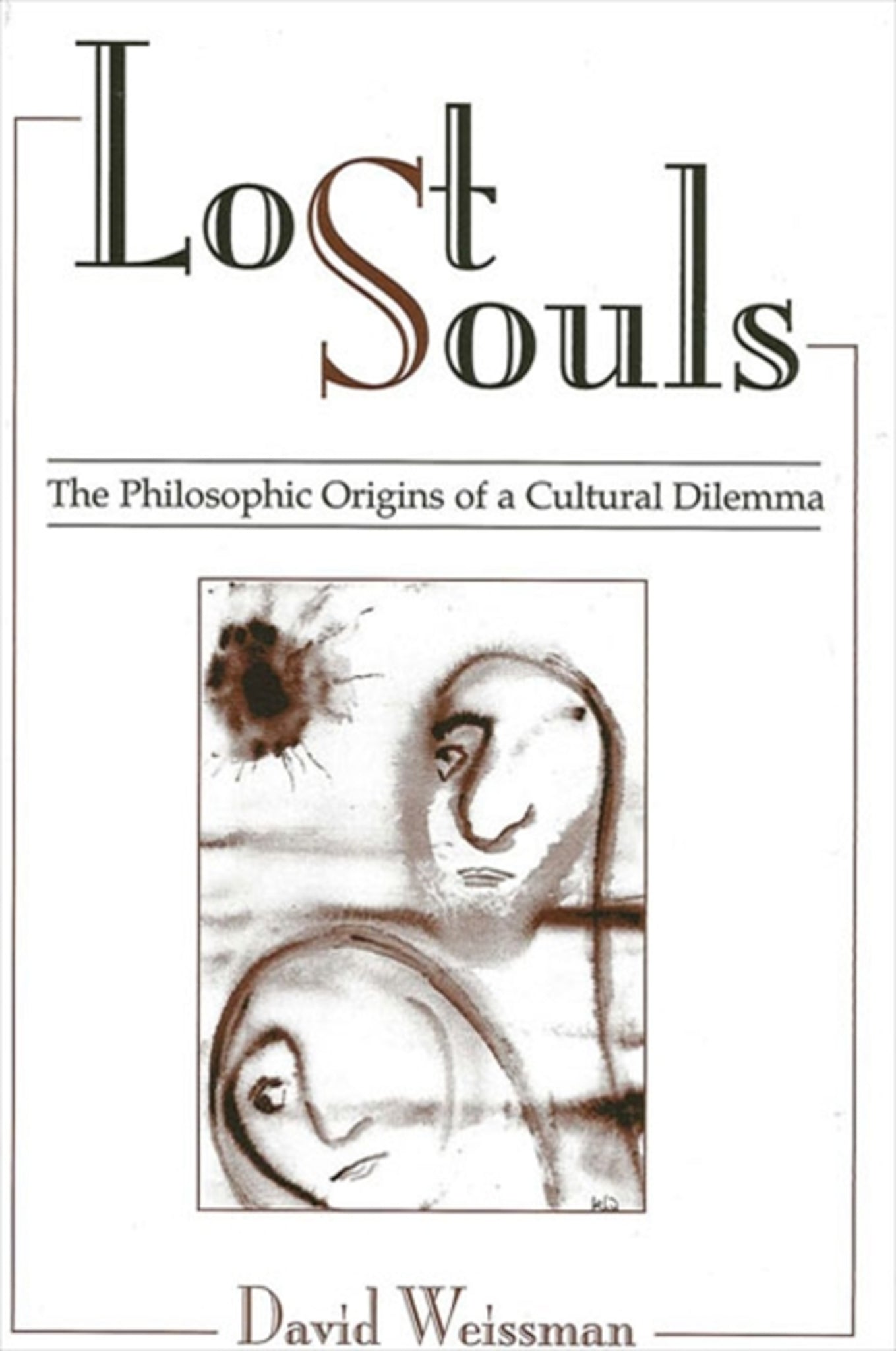We're sorry. An error has occurred
Please cancel or retry.
Lost Souls

Some error occured while loading the Quick View. Please close the Quick View and try reloading the page.
Couldn't load pickup availability
- Format:
-
17 March 2003

Traces the history of mind-body dualism.
Lost Souls examines the origins and consequences of the philosophic idea that mind and body are distinct. The author traces mind-body dualism from Plato, Plotinus, Augustine, and Proclus through Descartes and Kant to Nietzsche, Heidegger, Carnap, and Quine. Mind's separation from body has dominated philosophic thinking for millennia, yet most mental activities are now explained in physical terms. What are the implications if mind is material and mortal? Considering both philosophic and scientific ideas about mind, David Weissman explores our options. Rejecting the claim that the character and existence of other things are an effect of the ways we think about or perceive them, he reexamines such topics as meaning and truth, human significance, self, and society. He argues that philosophers have the rare opportunity to renew inquiry by invoking the questions that once directed them: What are we? What is our place in the world? What concerns are appropriate to being here?


"Weissman traces the effects of the counter-revolution taking place in the New Millennium with courage and frankness. Even those of us who delighted in the radical sectarianism of the sixties will appreciate the delicacy of his writing. His new book should be read and savored by all who are ready to face the more disagreeable political and cultural aspects of the world today with honesty and bravery." — Stephen Toulmin
"Weissman deals with the issue in modern Western thought—the Cartesian subjectifying of the ontological foundations of knowledge and value, and our consequent descent into an intellectual and moral dead end. He explains why we are 'lost souls' and what the first steps are toward recovering what we have lost. This is an important work." — George Allan, author of The Patterns of the Present: Interpreting the Authority of Form
"This is a profoundly neat book—exact in getting to the heart of some philosophic ideas that have been badly treated, with the result of much twentieth-century Western philosophy being wrong, empirically wrong. Rarely have I read philosophy that is so thoroughly thought through, with a complex analysis expressed in such simple and straightforward ways. Brilliantly written. This book stands as an intriguing contrast to Heidegger's story about Western philosophy, and is far more concise and to the point." — Robert Cummings Neville, author of Religion in Late Modernity
"Lost Souls is an exceedingly lucid romp through all of Western philosophy—with an illuminating commentary on science and mathematics to boot. It will appeal to all intellectually curious readers... Highly recommended." — CHOICE
List of Illustrations Acknowledgments
Introduction
Chapter One. Plato's Divided Line
1. The Line
2. The Line's Transmission
A. PlotinusChapter Two. Descartes' Revisions of the Line
B. Augustine and Proclus
1. Platonic Themes
A. Knowledge versus Belief2. Four Alterations: Descartes Amends Plato's Figure in These Critical Ways
B. Mind–Body Dualism
A. Imaginings and Material Particulars Merged as Empirical Differences3. The Line Redrawn with Descartes' Emendations
B. Forms Replaced by Geometricals
C. The Cogito Substituted for the Good
D. The Line Ensouled
4. The Equivocal Status of God and Space: The Richer and Leaner Theories
5. Skepticism
6. Descartes' Sources
Chapter Three. Consequences
1. Foundationalism
A. Epistemic and Ontological Foundationalsim2. Self-knowledge
B. Mind's Structure
3. A Priori Intelligibility
4. The Geometrical Character of the Physical
5. The Self-valorizing Ego
6. Descartes' Legacy
A. ExistenceChapter Four. Descartes' Heirs: Ontological Foundationalism and "The End of Western Metaphysics"
B. God
C. Mind as Thinking Substance
D. A Hierarchy of Mutually-Conditioning Orders
E. Which is Prior: Ideas or Percepts?
F. Ideas Construed as Rules
G. Meaning
H. Truth
I. Modalities
J. Will
K. Value
1. Kant
2. Kant in Our Time
A. Romantic Kantians: Nietzsche and Heidegger3. What is Philosophy?
B. Analytic Kantians: Carnap and Quine
4. Response
Chapter Five. The Cogito's Demise
1. Mind's Reduction to Body
2. Diagnosis: A Philosophical Theory Empirically Refuted
A. What is the Hypothesis Refuted?3. Consequences of the Refutation
B. What Conceptual Features Make Dualism Suspect?
C. What Empirical Evidence Refutes Descartes' Claim?
D. Is the Alleged Refutation a Methodological Error?
Chapter Six. Churning
1. Disputed Questions
A. Mind's Knowledge of Itself: Introspection, Behaviorism, or Inference?2. An Altered Focus
B. Experience: Schematization and Inspection, or Interaction?
C. Ideas: Innate or Acquired?
D. Meaning
E. Thought
F. Truth: Identity, Coherence or Correspondence?
G. Knowledge: Intuition and Demonstration, or a Network of Hypotheses?
H. Does Mind Prescribe or Investigate the Features of Things?
I. Space and Time: Forms of Intuition or Spacetime?
J. Freestanding Mind, or an Array of Causally-related Bodies or Systems?
K. Freedom or Determinism?
L. Control or Accommodation?
M. Egoism or Sociality?
N. Human Significance
Chapter Seven. Ideas to Reformulate and Save
1. Intelligibility: Are Thought and Language Autonomous?
2. Mind as Foundational: Culture
3. Self
4. The Good
Afterword
Notes
Index



